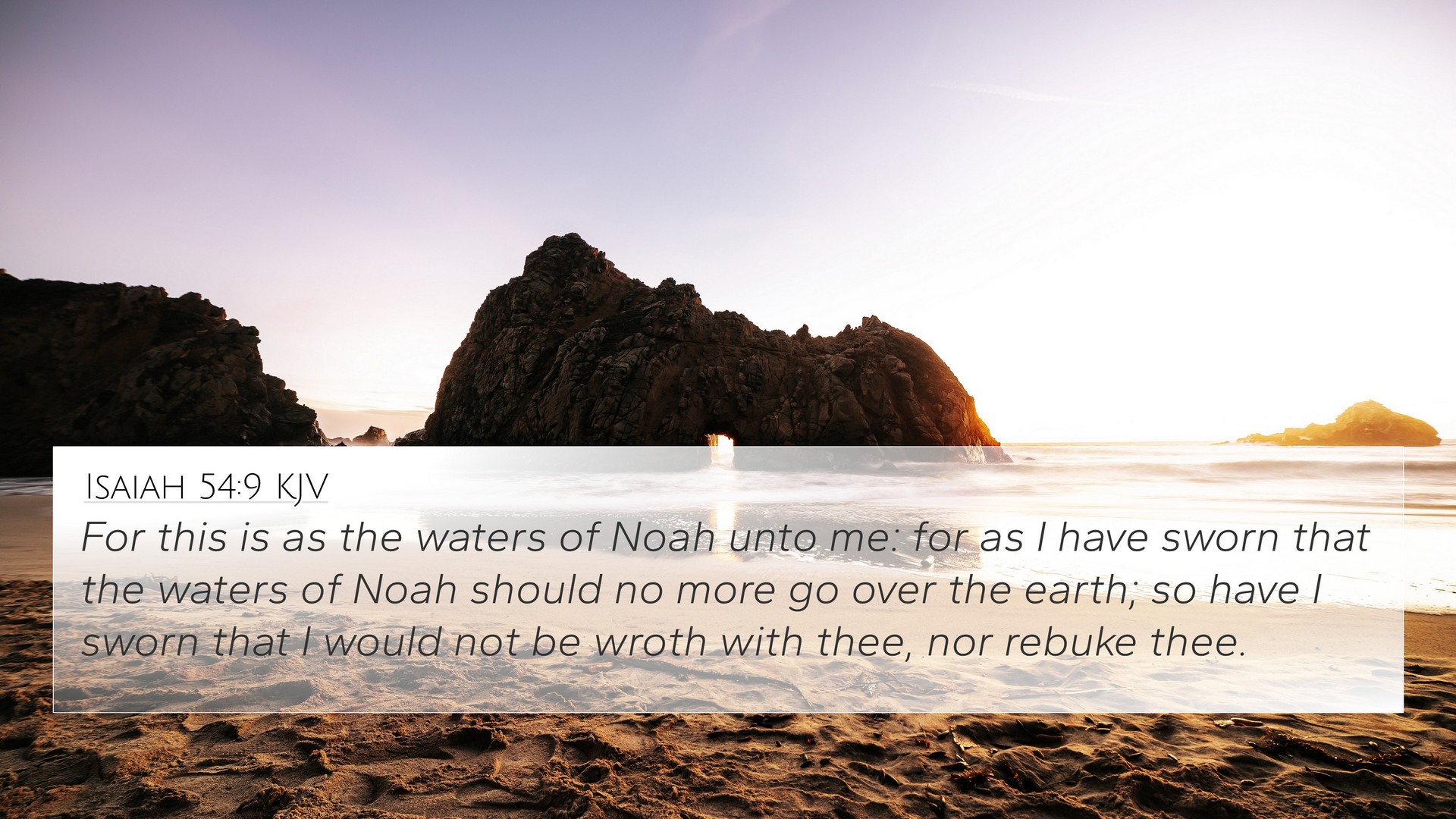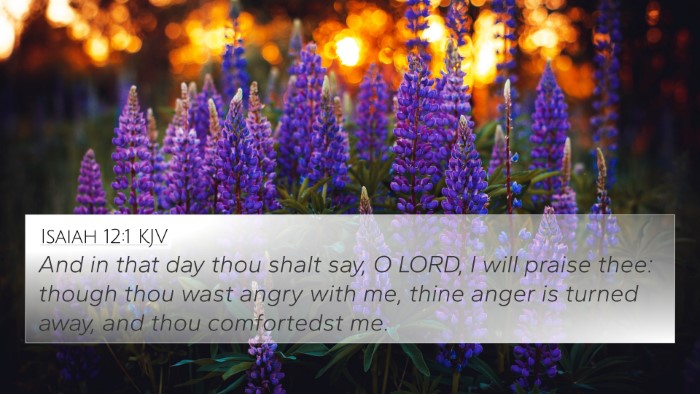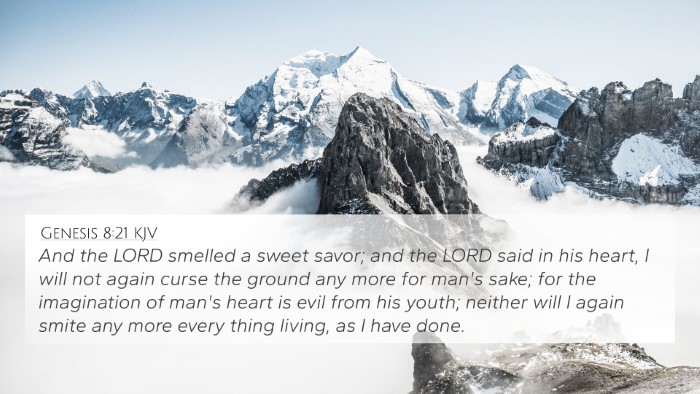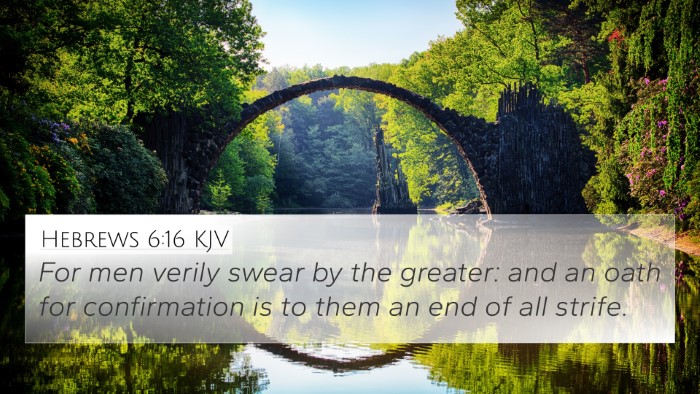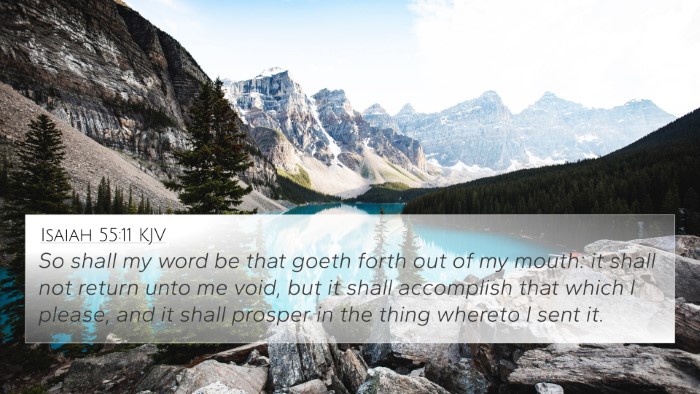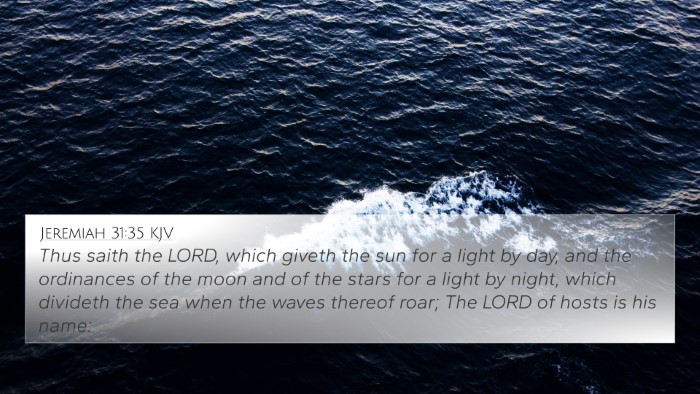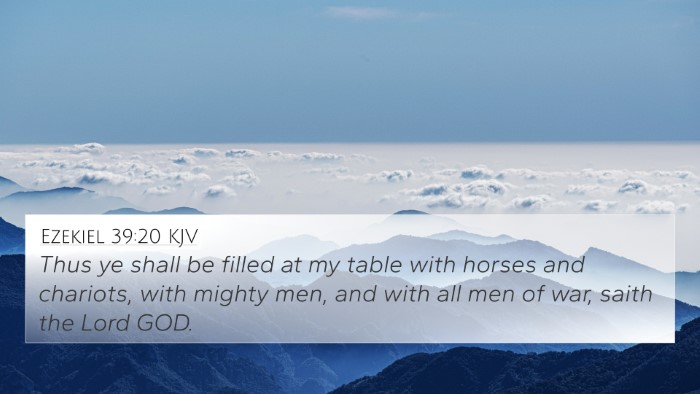Understanding Isaiah 54:9
Verse: Isaiah 54:9 - "For this is as the waters of Noah unto me: for as I have sworn that the waters of Noah should no more go over the earth; so have I sworn that I will not be wroth with thee, nor rebuke thee."
Summary of Meaning
Isaiah 54:9 presents God’s promise of mercy and peace to His people, drawing a parallel to His covenant with Noah after the flood. This verse emphasizes God's unchanging nature and his commitment to never again bring such wrath upon His people.
Commentary Insights
- Matthew Henry:
Henry observes that this verse signifies God’s assurance of love, contrasting the catastrophic flood with divine grace. The promise made after Noah indicates a future without divine wrath, suggesting that God’s anger is removed for His people.
- Albert Barnes:
Barnes interprets the “waters of Noah” as a symbol of judgment. By mentioning this judgment, God reassures His people that despite their failings, His grace prevails, and they can be confident in His everlasting kindness.
- Adam Clarke:
Clarke emphasizes the significance of God’s oath, suggesting that it serves as a comfort and reminder of God's unfailing promise to maintain peace with His covenant people.
Bible Verse Cross-References
This verse is richly connected with various other scriptures that reflect on God's mercy and covenants:
- Genesis 9:11: God’s covenant with Noah promising never to flood the earth again.
- Isaiah 54:10: Emphasizing God’s everlasting kindness and peace.
- 2 Peter 3:9: Reflects God's patience and desire for all to come to repentance instead of facing judgment.
- Romans 5:1: Talks about the peace that believers have with God through Jesus Christ.
- Ezekiel 36:26-27: Offers the promise of a new heart and spirit to God’s people.
- Hebrews 8:12: God's commitment to forgive iniquities and remember sins no more.
- Isaiah 43:2: Assurance of God’s presence in trials, indicating salvation and protection.
Theological Significance
The declaration in Isaiah 54:9 serves as a reassurance of God’s faithfulness to His covenant, highlighting themes such as:
- Covenant Loyalty: God remains steadfast to His promises despite human unfaithfulness.
- Restoration: This promise of peace indicates God's ongoing work of restoration in the lives of those who return to Him.
- Grace Over Judgment: The shift from judgment to grace reflects God's overarching redemptive plan.
Connections Between Bible Verses
In studying Isaiah 54:9, one can explore various connections and thematic links between Bible verses:
- Mercy vs. Wrath: Isaiah 54:9 contrasts the flood, representative of judgment, with God’s promise of mercy, found in texts like Psalm 30:5.
- The New Covenant: This verse ties into discussions of the new covenant established in Christ (Luke 22:20) where God’s mercy is fully revealed.
- Assurance of Salvation: Comforting verses like Philippians 1:6 affirm that He who began a good work will carry it to completion, linking to the assurance of peace in Isaiah.
Comparative Bible Verse Analysis
When performing a comparative analysis, one may observe the significance of each promised covenant, linking verses across both Testaments:
- Comparing God's covenant with Noah to His promise in Romans 8:38-39 reinforces that nothing shall separate us from His love.
- Hebrews 6:17-18 shows the unchanging nature of God's promises, echoing the assurance in Isaiah.
Tools for Bible Cross-Referencing
For an in-depth study of cross-referencing these themes and verses, the following tools can be beneficial:
- Bible Concordance: A tool for finding related verses by word or theme.
- Bible Cross-Reference Guide: Guides that categorize verses based on thematic connections.
- Cross-Reference Bible Study Methods: Techniques for correlating passages to deepen understanding.
Conclusion
Isaiah 54:9 is a powerful reminder of God's unfailing grace and commitment to His people. By exploring the connections through scripture, one can gain a richer understanding of God's character and His enduring promises of peace. The cross-references enhance our study, illustrating the unified message of love and faithfulness throughout the Bible.
